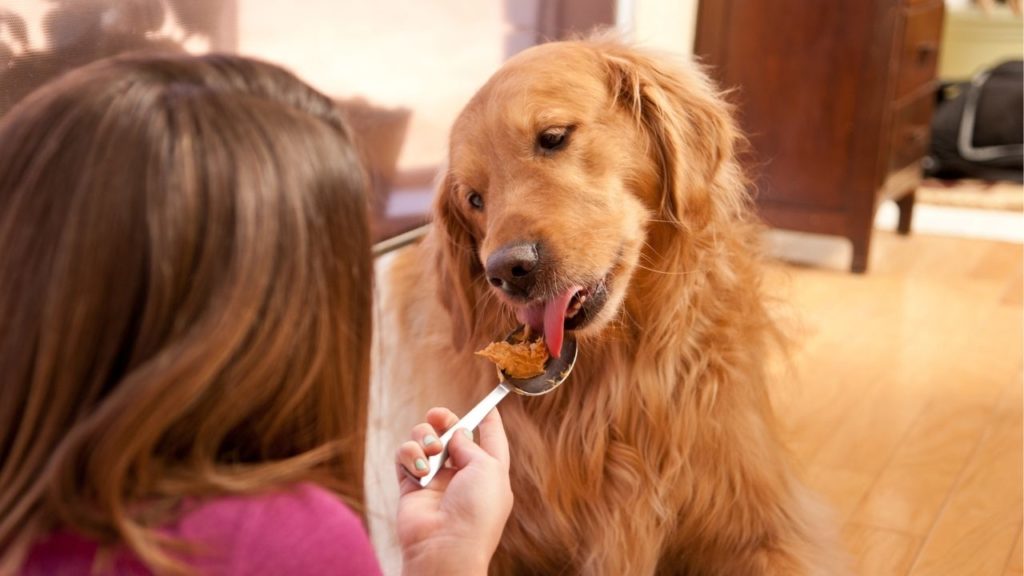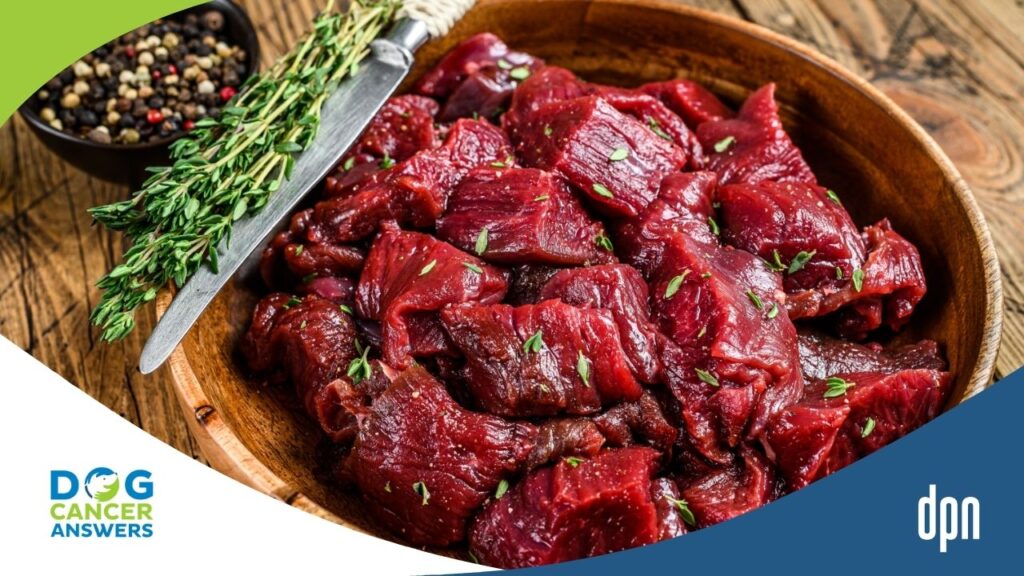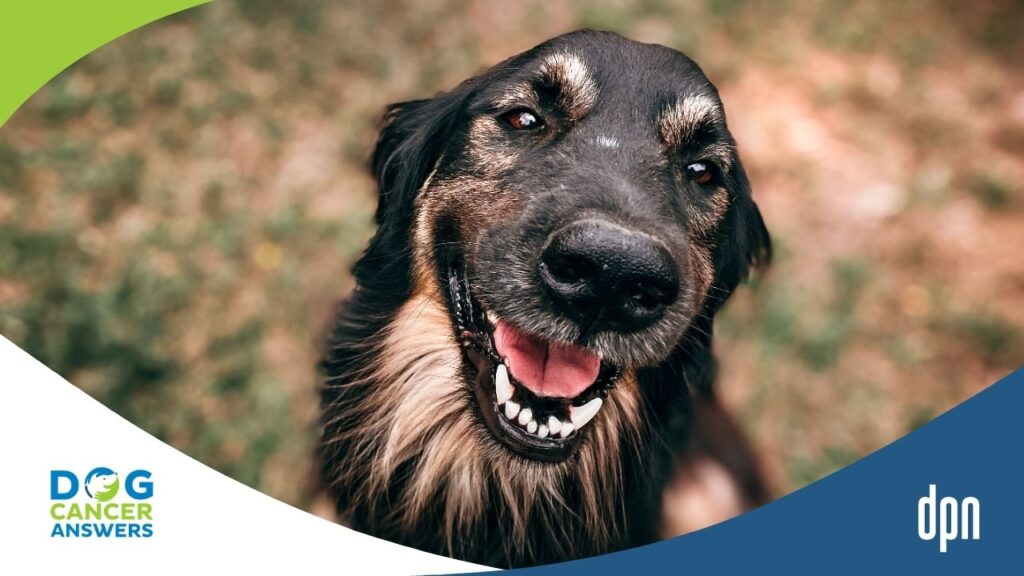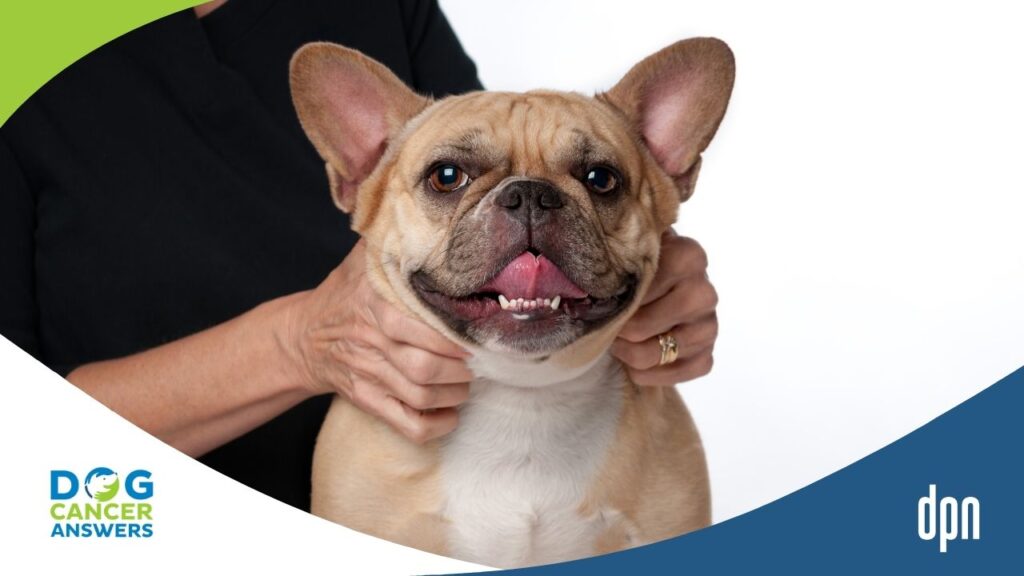EPISODE 93 | RELEASED October 26, 2020
Is Peanut Butter Bad for Dogs? │ Dr. Demian Dressler Deep Dive
Should dogs get peanut butter? What are the risks?
SHOW NOTES
Dogs love the taste and smell of peanut butter (PB), but the real question is, should we be giving it to them? In this quick but informative episode, Dr. Dressler gives his advice on if peanut butter is good or bad for dogs, and particularly dogs with cancer. He also makes mention of a few other health factors that must be considered before making the conscious decision to share your next jar of PB with your hairy best friend.
Advice about what kind of peanut butter you might be able to give your dog, how much peanut butter he or she might be able to have, what are the risk factors associated with giving a dog with cancer peanut butter, along with some alternative options for hiding your dog’s next dose of pills, and more.
You can reach out to Dr. Demian Dressler directly on his veterinary hospital’s website: https://VetinKihei.com.
>> Dr. Demian Dressler: So is peanut butter good? Or is it bad? There’s an assumption that things are good or bad. It’s kind of a way that we look at the world. We tend to make things black or white. How much peanut butter are we actually talking about? Are we talking about a half, a teaspoon per day? Are we talking about a half a jar per day?
Because those are two very different things.
>> Announcer: Welcome to Dog Cancer Answers, where we help you help your dog with cancer. Here’s your host, James Jacobson.
>> James Jacobson: Hello friends. Thank you for joining me today. I’d like to start off today’s show by telling you that I understand. I understand how clever a dog can be and how good some of them are at detecting hidden pills and capsules.
You know, I’ve been stumped more times than I’d like to admit– what can I hide this pill in that my dog won’t find it? Let’s be honest, dogs have a keen ability to out smart us, way before we’ve caught on that they’ve done it.
So what happens when we’re hiding pills and things aren’t working anymore? We start looking for more, highly flavored, delicious, palatable things that we can find in our refrigerators or our pantries. Things like peanut butter. But should we be doing that?
We’ll find out in today’s question and answer episode from Dr. Demian Dressler the author of the bestselling book, The Dog Cancer Survival Guide– everything you wanted to know about your dog and peanut butter.
Quick plug here. That book, The Dog Cancer Survival Guide is the sponsor of today’s podcast episode.
Co-authored by a Veterinary Oncologist, Sue Ettinger. The Dog Cancer Survival Guide is available wherever fine books are sold and online at dogcancerbook.com. Now, let’s check in with Dr. D and see what he thinks about the safety of feeding your dog, peanut butter.
Dr. Dressler, we have a question here and evidently a lot of people are asking it.
Is peanut butter good or bad for dogs?
>> Dr. Demian Dressler: Well, that is an interesting question, because I think if you look at this question, we have to take into account the presupposition. So there’s an assumption that things are good or bad. It’s kind of a way that we look at the world. We tend to make things black or white.
And one of the things that you realize as you kind of get into this field is that the lines between good and. Bad become a little bit harder to clarify. As an example, how much peanut butter are we actually talking about? Are we talking about a half, a teaspoon per day? Are we talking about a half a jar per day?
Because those are two very different things. For example, you could look at say salt. We all need salt. If you don’t have salt, you’ll eventually die. But if you eat a whole lot of salt than you will also die. So salt good, or is it bad? It’s all a question of degree and amount. And it’s a little bit hard for me to give a cookie cutter recommendation on peanut butter, because a lot of it’s going to be dependent on the dog.
Some dogs, when they take peanut butter, because of the fat content, their pancreas will get inflamed and they’ll develop vomiting or diarrhea and reduced appetite and other dogs who take peanut butter, to them it’s nothing, it’s a great thing. So it’s a little bit hard. So what I would do is I would say, okay, well, let’s, first of all, make sure that you start small with the peanut butter.
And that would be, say a half a teaspoon in a day, and just make sure that there’s no vomiting or diarrhea or loss of appetite or other strange reactions, which would be very unusual because peanut allergies are not common in dogs, but they do exist. So half a teaspoon per day, do that for a day. Then the next day you can work your way up to three quarters of a teaspoon, and then maybe even go up to a teaspoon and a half.
Now some of this will also depend on the size of the dog. So if you’ve got a teacup breed, sort of a dog that weighs five pounds, one and a half teaspoons is going to be entirely different from a giant breed, Neapolitan Mastiff. So again, there’s a question of amount. So reasonable quantities usually are not a problem consult with your veterinarian on it and make sure they have allergies.
You work your way up slowly. And in terms of final recommendation, you’re going to need to discuss that with your veterinarian, because it’s a little bit hard to give a blanket recommendation.
>> James Jacobson: Now, I also imagine it depends a little bit on what the peanut butter is. I think there are peanut butters that are flavored with xylitol, which I know is really bad.
>> Dr. Demian Dressler: Yeah. Xylitol is not a good thing to give to your dog, regardless of what food item you’re feeding your animal. Obviously in the case of cancer, we want to try to avoid carbohydrates, especially simple carbohydrates. So that’s going to be things like corn syrup. That’s going to be things like simple sugars, some peanut butters.
Well, they’re very tasting and sweet, but they have added sugar ingredients that are not xylitol, but are legitimately carbohydrates, starches, and sugars. And since these are cancer’s preferred source of fuel, they’re good things to avoid. And you could even, you know, if you want to pursue this further, you could get concerned about aflatoxin, which is a mold that’s found and peanuts, but again, it’s kind of like, well, you could be concerned about your eggs giving you salmonella, so you can read about these things, but here in Western society, most of the time, not all the time, but most of the time these things are tested for, and, uh, you know, 99.9% of the time.
The foods are safe in terms of things like molds and bacteria and other contaminants.
>> James Jacobson: So that does get into the food system. But that’s really the exception. So if you’re going to use peanut butter, a natural one, obviously just peanuts.
>> Dr. Demian Dressler: Yeah. Ground peanuts. Always a good idea.
>> James Jacobson: Do dogs ever get allergies to peanuts?
You said that it’s rare.
>> Dr. Demian Dressler: It’s rare. Yeah. I mean, you can have allergies, all sorts of things, just like in people. Many, many, many years ago, when I first introduced the idea of using krill oil as a source of fatty acids, for Omega three fatty acids– which I discuss in the book. This is like 20 years ago or something.
I got this feedback. Somebody wrote, I’m not going to carry an epi pen because you’re suggesting that you give the dog shellfish derived products– I was like, it’s not like every dog has a shellfish allergy, so it’s all a matter of the individual variation there. And again, if you were say a human being and you’re allergic to crab and you go off and you eat a crab sandwich, well, that’s bad for you.
Same thing as true with dogs, but that’s the minority. Like if you look at the populations involved in the numbers that are involved, it’s very small portion of dogs that are allergic to things like peanuts and shellfish or whatever particular allergen you’re talking about.
The subject of allergies. It’s a complicated one, but if you look at the most common food allergens, those are going to be beef, soy, dairy, wheat, corn, and chicken.
And lamb is starting to become one and rice is starting to become one, but those are your most common dietary allergens. Reactions to things that are different from that are quite uncommon, but do very rarely happen just as they do in people.
>> James Jacobson: So I know that some people asked us about using peanut butter as a way to sort of hide the pills.
What do you think?
>> Dr. Demian Dressler: Yeah, well, again, it’s a matter of amount and it’s a matter of tolerance. Some dogs can eat whatever, and they’re fine.
>> James Jacobson: Right.
>> Dr. Demian Dressler: And some dogs, if they have a simple dietary change from one high quality, good food to another high quality, good food. They’ll end up bleeding rectally with hemorrhagic gastritis and in critical shape with low blood pressure and in need of intensive care.
So the recommendation, if you want to use peanut butter, start slowly and under veterinary supervision, do a little tolerance test first to get an idea of, can my dog tolerate fats, does my dog have any suspected dietary allergens– take your animal’s individual needs into account first, and then, you know, you can proceed.
The other thing, what I usually tell people as far as administration of tablets pills and things. Meatballs often work as well. You can do ground meats that are seasoned– again, avoiding really high fat. If your dog doesn’t have a beef allergy, beef hamburger balls worked just fine. You can stick the pill inside the meatball, or you can use turkey, lamb, bison, ostrich.
A lot of these protein sources come in ground form and you can cook and freeze the little balls and then defrost them
>> James Jacobson: And pop the pill in when it’s soft enough.
>> Dr. Demian Dressler: You can defrost a little by little, so they don’t go bad in your refrigerator. Because say you make a month’s worth of little meatballs, take them out little by little, or freeze them in small packages so that you can use them and defrost them gradually without them spoiling.
>> James Jacobson: That sounds like a very tasty, natural pill pocket.
>> Dr. Demian Dressler: Yeah. Quite good.
>> James Jacobson: Dr. Dressler, thank you so much for being with us today.
>> Dr. Demian Dressler: You’re welcome.
>> James Jacobson: So there you have it. Peanut butter is safe for dogs. As long as you take the necessary precautions and consult with your veterinarian before giving it to your dog, especially if your dog has cancer.
To access the show notes from today’s episode, or to listen to any of our previous episodes, you can check them out at our website at dogcanceranswers.com or you can connect with us on social media.
Now, if you haven’t subscribed to the newsletter Dog Cancer News, you should. The newsletter is written by the editorial team of dog lovers at DogCancerBlog. And, they happen to be one of the sponsors of this week show.
As a subscriber to the newsletter, Dog Cancer News. You can get access to tips and recipes and new developments in dog cancer.
And the best part, the newsletter is completely complimentary. Free– zero, cost, zilch– no cost, totally free. Here’s how to sign up, just go to dogcancernews.com.
Those touchstones remind me that we have veterinarians on call at Dog Cancer Answers on our Listener Line. If you have questions for one of our dog cancer vets, give us a call and tell us about it. We’ll make sure that your question is addressed with one of our veterinary experts. And it just might appear on a future episode of Dog Cancer Answers.
The telephone number to call is (808) 868-3200. That is available 24 hours, seven days a week, (808) 868-3200. Or you can visit us at our website at dogcanceranswers.com.
Well, that does it for today’s Q&A episode. I’m James Jacobson. And from all of us here at Dog Cancer Answers and Dog Podcast Network, I wish you and your dog a warm Aloha.
>> Announcer: Thank you for listening to Dog Cancer Answers. If you’d like to connect, please visit our website at dogcanceranswers.com or call our listener line at (808) 868-3200. And here’s a friendly reminder that you probably already know– this podcast is provided for informational and educational purposes only. It’s not meant to take the place at the advice you receive from your dog’s veterinarian.
Only veterinarians who examine your dog can give you veterinary advice or diagnose your dog’s medical condition. Your reliance on the information you hear on this podcast is solely at your own risk. If your dog has a specific health problem, contact your veterinarian. Also, please keep in mind that veterinary information can change rapidly.
Therefore, some information may be out of date.
Dog Cancer Answers is a presentation of Maui Media and in association with Dog Podcast Network.
Hosted By
SUBSCRIBE ON YOUR FAVORITE PLATFORM
Topics
Editor's Picks
CATEGORY






